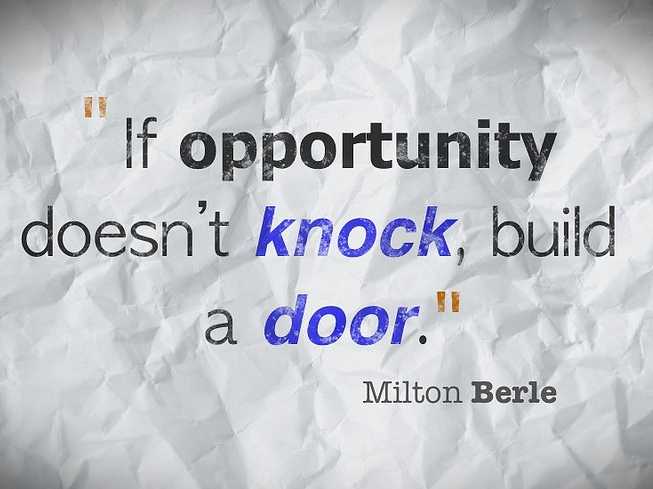Franz Kafka is considered one of the most creative and influential writers of the 20th century, but he actually spent most of his time working as a lawyer for the Workers Accident Insurance Institute. How did Kafka produce such fantastic creative works while holding down his day job?
By sticking to a strict schedule.
He would go to his job from 8:30 AM to 2:30 PM, eat lunch and then take a long nap until 7:30 PM, exercise and eat dinner with his family in the evening, and then begin writing at 11 PM for a few hours each night before going to bed and doing it all over again.
Kafka is hardly unique in his commitment to a schedule. As Mason Currey notes in his popular book, Daily Rituals: How Artists Work, many of the world’s great artists follow a consistent schedule.
- Maya Angelou rents a local hotel room and goes there to write. She arrives at 6:30 AM, writes until 2 PM, and then goes home to do some editing. She never sleeps at the hotel.
- Pulitzer Prize winner Michael Chabon writes five nights per week from 10 PM to 3 AM.
- Haruki Murakami wakes up at 4 AM, writes for five hours, and then goes for a run.
The work of top creatives isn’t dependent upon motivation or inspiration, but rather it follows a consistent pattern and routine. It’s the mastering of daily habits that leads to creative success, not some mythical spark of genius.
Here’s why…
Daily Routines: The Power of the Schedule
William James, the famous psychologist, is noted for saying that habits and schedules are important because they “free our minds to advance to really interesting fields of action.”
An article in The Guardian agreed by saying, “If you waste resources trying to decide when or where to work, you’ll impede your capacity to do the work.” And there are plenty of research studies on willpower and motivation to back up that statement.
In other words, if you’re serious about creating something compelling, you need to stop waiting for motivation and inspiration to strike you and simply set a schedule for doing work on a consistent basis. Of course, that’s easy to say, but much harder to do in practice.
Here’s one way of thinking about schedules that may help.
Permission to Create Junk
Weightlifting offers a good metaphor for scheduling creative work.
I can’t predict whether or not I’ll set a PR (personal record) before I go to the gym. In fact, there will be many days when I’ll have a below average workout. Eventually, I figured out that those below average days were just part of the process. The only way to actually lift bigger weights was to continually show up every Monday, Wednesday, and Friday — regardless of whether any individual workout was good or bad.
Creative work is no different than training in the gym. You can’t selectively choose your best moments and only work on the days when you have great ideas. The only way to unveil the great ideas inside of you is to go through a volume of work, put in your repetitions, and show up over and over again.
Obviously, doing something below average is never the goal. But you have to give yourself permission to grind through the occasional days of below average work because it’s the price you have to pay to get to excellent work.
If you’re anything like me, you hate creating something that isn’t excellent. It’s easy to start judging your work and convince yourself to not share something, not publish something, and not ship something because “this isn’t good enough yet.”
But the alternative is even worse: if you don’t have a schedule forcing you to deliver, then it’s really easy to avoid doing the work at all. The only way to be consistent enough to make a masterpiece is to give yourself permission to create junk along the way.
The Schedule is the System
During a conversation about writing, my friend Sarah Peck looked at me and said, “A lot of people never get around to writing because they are always wondering when they are going to write next.”
You could say the same thing about working out, starting a business, creating art, and building most habits. The schedule is the system that makes your goals a reality. If you don’t set a schedule for yourself, then your only option is to rely on motivation.
- If your workout doesn’t have a time when it usually occurs, then each day you’ll wake up thinking, “I hope I feel motivated to exercise today.”
- If your business doesn’t have a system for marketing, then you’ll show up at work crossing your fingers that you’ll find a way to get the word out (in addition to everything else you have to do).
- If you don’t have a time block to write every week, then you’ll find yourself saying things like, “I just need to find the willpower to do it.”
Stop waiting for motivation or inspiration to strike you and set a schedule for your habits. This is the difference between professionals and amateurs. Professionals set a schedule and stick to it. Amateurs wait until they feel inspired or motivated.
P.S. For more ideas on how to set schedules and stick to habits for the long-term, read my free 45-page guide: Transform Your Habits.
James Clear writes at JamesClear.com, where he shares ideas for using behavior science to help you master your habits, do better work, and improve your health. For useful ideas on improving your mental and physical performance, join his free newsletter.
This article was originally published on JamesClear.com
Image Credit: www.businessinsider.com





